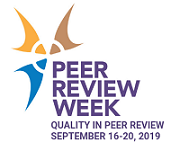
Johns Hopkins UniversityEst. 1876
America’s First Research University
Generous, Generative Peer Review

My opening proposition: Peer review at its finest is an act of extraordinary generosity and is capable of engendering generosity in its wake.
Before I go further, though, let me acknowledge that I have, like all academic authors, been on the receiving end of the “reviewer 2” treatment: the review that seems pointlessly contrary, personally motivated, or otherwise determined to destroy the author’s confidence. I’m afraid that I’ve also likely been reviewer 2 at some point, frustrated by a piece of writing that seems to me to overlook something obvious and frankly a bit short-tempered about it.
Peer review can be done badly, or in the wrong spirit, but when done well it is an act of attention to the work of another that makes a powerful contribution to the development of both the field and its community of practice. Peer review at its best fosters not competition but connection, operating not in an economy of scarcity but in a space of collaborative abundance.
But creating the conditions under which peer reviews, and peer reviewers, can be their best — can be collaborative rather than competitive — is not always simple. What might we do in order to allow peer review to flourish as a generous, generative process?
Clearly there’s some internal work to be done on the part of reviewers: remembering to ground critique in constructiveness, remembering — as Beronda Montgomery argues in the context of mentoring — that our job is to help the scholarship under review best achieve its goals rather than achieve our goals for it. And there’s internal work to be done on the part of authors as well: remembering that the time and attention paid to our work — even, or maybe even especially, when it results in criticism that’s difficult to hear — is an act of generosity, providing important food for thought if not always the right paths forward.

But there’s also a lot of systemic work that could be done in order to allow peer review’s generous spirit to flourish. We might focus, for instance, on devising ways to make the work of peer review visible and rewarded as work, both as a commitment of time and energy and as a crucial contribution to the development of scholarship. The current structures of anonymous peer review were designed to allow reviewers to focus on the work without being unconsciously biased by the identity or affiliation of the author, as well as to allow reviewers to express forthright opinions without worrying about reprisal. This atmosphere of neutrality has at times been crucial to the development of scholarship, and especially to expanding the possibilities for scholars from underrepresented groups and to pressing for critical change within fields. However, the apparent neutrality created by anonymity has fostered a disconnection between authors and reviewers, preventing their mutual recognition as collaborators in the same enterprise. Under the structures of fully-anonymous peer review, it can be difficult for an author to know how to interpret or make use of reviewer comments. And even when those comments are helpful, the author might include a note thanking the reviewers, but it’s never quite clear to future readers what role those reviewers played in the text’s development, nor is it possible for the reviewers to be credited appropriately for their insights.
So how might we create environments in which all of us — authors, reviewers, and publishers — can collaborate to ensure that the work of peer review is done in the most generative, communal spirit possible? This need not be fully open, public peer review. The journal Kairos, for instance, has long used a system of collaborative review in which the editors and editorial board discuss submissions as a group and then, if they choose to proceed, assign a member of the team to work directly with the author during the revision process. Peer review in this form remains a pre-publication, off-line process, but one that is designed to support the author in strengthening the work. Other such processes might be more open: the Public Philosophy Journal employs a process of formative peer review that serves to strengthen the work pre-publication but that also encourages post-publication discussion and creates a space for public acknowledgment of reviewer efforts. And perhaps even more radically open: I posted the draft manuscripts of my last two books, Generous Thinking and Planned Obsolescence, as part of a period of community review. These review processes brought many more perspectives to bear on the texts — with around 40 commenters rather than the usual 2 or 3 reviewers — and it allowed me to see commenters discussing issues in the manuscripts with one another, clarifying the concerns being raised and helping me decide how to revise. Moreover, the openness of the process, and the record that it created, allowed me to cite the reviewer comments, enabling a much richer sense of the discussions that led to the ideas in the book as finally published.
These are only a few examples of peer review processes that foster generativity and collaboration, and that enable the work of peer review to become a bit more visible and rewarded for the essential contributions that it makes to the development of our fields. There are no doubt other such platforms and processes through which we can work to develop an environment that better allows reviewers to listen to authors, and authors to listen to reviewers. Such an environment would allow the generosity that underwrites scholarship to flourish because of, rather than in spite of, the work of peer review.
Kathleen Fitzpatrick is the director of Digital Humanities and a professor of English at Michigan State University. She is the author of Generous Thinking: A Radical Approach to Saving the University, Planned Obsolescence: Publishing, Technology, and the Future of the Academy and The Anxiety of Obsolescence: The American Novel in the Age of Television.
This post is part of our celebration of the fifth annual Peer Review Week, with the theme “Quality in Peer Review”. Come back each day for insight from one of our book authors into the role of peer review in their work.



